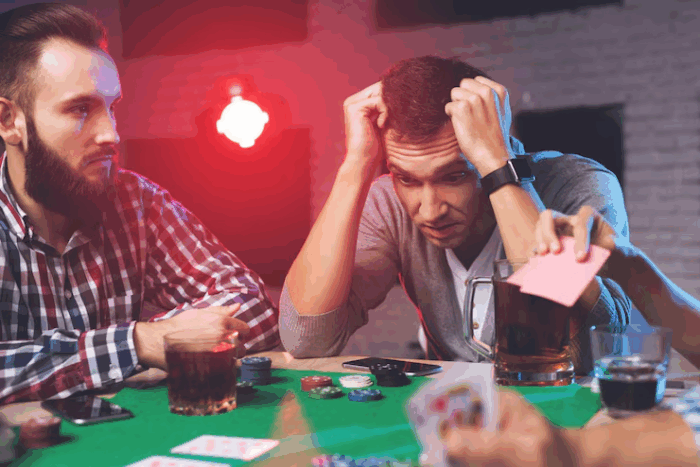
Gambling has a magnetic pull that captivates millions, drawing them back time and again despite the risks involved. The thrill of chance, the allure of winning, and the social aspects create a complex psychological tapestry that keeps players engaged. Understanding this phenomenon reveals not just the allure of the game but also the deeper motivations that drive individuals to gamble.
At its core, the psychology of gambling intertwines with human behavior, emotions, and decision-making processes. Factors like dopamine release and cognitive biases play significant roles in shaping the gambling experience. Delving into these psychological elements sheds light on why people can find themselves trapped in cycles of betting, often at the expense of their well-being. Platforms like casino-incognito.com provide resources and articles that explore these dynamics in depth, helping readers understand the intricacies behind our relentless pursuit of luck and fortune.
Understanding Gambling Behavior
Understanding the psychology behind gambling reveals complex motivations and behaviors that keep individuals engaged. Psychological elements often intertwine with risk, reward, and addiction, forming a cycle that can be hard to break.
The Allure of Risk and Reward
The prospect of winning big captivates many. People are drawn to the excitement of uncertainty, where risk fuels anticipation. Players often experience heightened emotions during games, leading to a rush that overshadows potential losses. The concept of variable rewards plays a crucial role; irregular gains contribute to the thrill, encouraging continued participation. This dynamic creates a compelling environment, promoting repeated engagement despite the reality of losses. Cognitive distortion reinforces this allure, where individuals believe they can overcome odds, leading them to chase losses or pursue the next win.
The Role of Addiction
Addiction significantly impacts gambling behavior. The release of dopamine during gambling activities provides a feeling of pleasure and fulfillment. Over time, the brain becomes accustomed to these spikes in dopamine, prompting individuals to seek repeated experiences for the same level of satisfaction. Withdrawal symptoms may emerge when individuals attempt to cut back, creating a cycle of reliance. Social factors also play a role; many find comfort in gambling environments, fostering connections that encourage ongoing participation. This combination of neurological and social influences makes it difficult for some to recognize the path from enjoyment to dependence, leading to compounding consequences.
Psychological Factors Involved
Psychological factors play a crucial role in driving individuals to engage in games of chance repeatedly. These mental and emotional components shape user experiences and decisions, impacting overall gambling behavior.
Cognitive Biases in Gambling
Cognitive biases significantly affect decision-making, often leading individuals to misinterpret probabilities. People tend to believe they possess a better understanding of odds than they do. For instance, they might overestimate their chances of winning following a successful outcome, coaxing them into future sessions. Confirmation bias encourages gamblers to seek evidence supporting their beliefs while disregarding losses. The illusion of control allows individuals to feel they can influence results through strategies that have no impact on random events. These biases create a false sense of confidence, reinforcing the desire to return and play despite adverse outcomes.
Emotional Triggers and Impulsivity
Emotions heavily influence gambling behavior, often leading to impulsive decisions. Feelings of excitement and euphoria associated with near wins prompt players to continue participating, driven by the hope of experiencing that adrenaline rush again. Stress and anxiety can also trigger gambling as a form of escapism. During moments of emotional distress, individuals may seek relief in gambling activities. Impulsivity further exacerbates these tendencies, with players acting on feelings rather than rational thought processes. This combination of emotional triggers and impulsivity fosters an environment where individuals frequently find themselves returning to games of chance, often ignoring potential consequences.
The Role of Environment
The surroundings significantly shape gambling behaviors and experiences. Individuals often engage in gambling within vibrant, social settings that enhance thrill and excitement. The design and atmosphere of these environments contribute to the sensory stimulation that encourages return visits. Bright lights, enticing sounds, and the presence of others amplify emotional responses, creating a sense of community that draws people in.
Social Influences on Gambling Habits
Social dynamics play a crucial role in shaping gambling behaviors. Peer pressure and the influence of friends can compel individuals to participate in games of chance. Group activities and competitions foster a sense of belonging, leading to repeated experiences in gambling venues. Additionally, shared excitement during wins deepens connections among participants, reinforcing the desire to return. The need for social interaction and approval can create a cycle where individuals gamble more frequently to maintain relationships and participate in shared experiences.
Marketing Tactics and Their Impact
Retailers and online platforms utilize strategic marketing to attract and retain players. Promotions, bonuses, and loyalty programs encourage increased participation. Advertisements often evoke emotions associated with potential wins, sparking interest and driving foot traffic. Targeted content tailored to specific demographics further enhances relevance, making the experience feel personal. These marketing strategies leverage the thrill of uncertainty and the possibility of large rewards, optimizing the environment for continued engagement. As these tactics evolve, they create an atmosphere that consistently entices individuals to return for more.
Self-Control and Resilience
Self-control and resilience play significant roles in managing impulses related to gambling activities. Understanding and implementing strategies for impulse control can reduce the likelihood of engaging in detrimental behavior. One effective strategy involves setting clear limits on the time and money allocated for these activities. By establishing strict budgets and sticking to them, individuals can maintain greater control over their gambling habits. Additionally, practicing mindfulness techniques can enhance self-awareness, enabling individuals to recognize triggering situations and manage their reactions.
Strategies for Managing Gambling Impulses
Effective methods for managing impulses include creating a structured plan for participation. Individuals can utilize tools such as self-exclusion programs, which allow them to restrict access to gambling venues or platforms. Setting limits on time spent gambling serves as a tangible boundary, promoting accountability. Engaging in alternative activities, like exercising or pursuing hobbies, fills time and shifts focus away from gambling. Implementing a pre-commitment strategy, where individuals commit to a specific budget beforehand, reinforces responsible behavior and discourages impulsive decisions.
Building a Support System
Having a robust support system enhances resilience against gambling-related urges. Friends and family members can provide crucial emotional support and encouragement, fostering open conversations about challenges faced. Sharing experiences with others who understand the temptation can create a sense of community and decrease feelings of isolation. Participating in support groups or counseling services offers additional resources to address underlying issues related to gambling behavior. By building connections with individuals who have successfully navigated similar struggles, a person can find motivation and encouragement while striving for healthier habits.
Conclusion
Gambling’s psychological allure is a complex interplay of excitement and emotional engagement. The thrill of chance combined with cognitive biases creates a compelling environment that keeps individuals returning. As they navigate the balance between risk and reward many find themselves caught in cycles of hope and disappointment.
Understanding these psychological factors is crucial for promoting responsible gambling. By recognizing the influences of dopamine and social dynamics individuals can make more informed choices about their gambling habits. Building a support system and practicing self-control can empower them to manage their impulses effectively.
Ultimately the journey through the psychology of gambling reveals not just the risks but also the profound human experiences tied to chance and community. By addressing these elements society can foster healthier relationships with gambling while appreciating its captivating nature.










